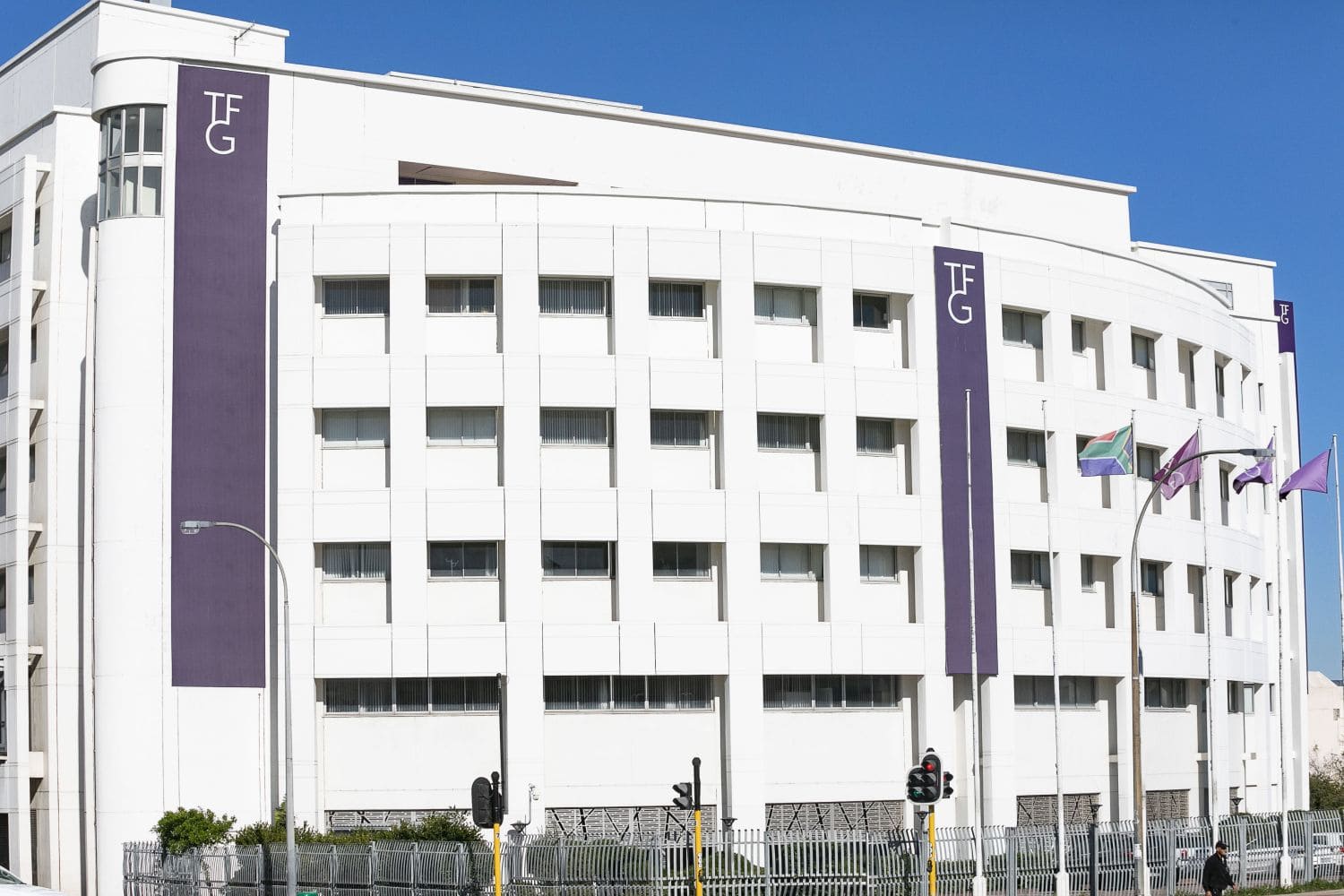
CAPE TOWN, SOUTH AFRICA - JUNE 24: A general view of The Foschini Group (TFG) Head Office on June 24, 2020 in Cape Town, South Africa. Foschini Group is a South African retail clothing company with more than 3,000 stores. It is headquartered in Parow near Cape Town. (Photo by Gallo Images/Jacques Stander)
The number of customers owing The Foschini Group (TFG) continues to rise, pushing the company’s debtors book up 8% to R9 billion. While the quality of these accounts remains steady, the retailer has increased its provisions to reflect the growing amount owed.
TFG is one of South Africa’s prominent retail groups, known for offering young adults, including students, clothing accounts that allow them to buy items on credit.
The retailer’s trading statement for the six months ended 30 September 2025 released on Tuesday show that TFG recorded an increase in sales, however shareholders were told there would be a decline in basic earnings.
ALSO READ: Foschini Group’s online platform, Bash, boosts sales
The Foschini Group is owed R9 billion
TFG owns popular stores such as Foschini, Markham, Spotscene, Totalsport, and @home, among others. The group also owns Bash as its online platform, which has more than 200 brands, such as Diesel, Nike, Adidas, Cotton On, American Swiss and Sterns.
People who hold TFG accounts can buy items from those brands on credit. TFG also operates in Africa, Australia and London.
When it comes to TFG Africa, the retailer said money owed by customers has increased from R8.3 billion in 2024 to R9 billion. However, it noted that sales made using credit have also increased compared to the previous year.
“Credit sales grew by 7.9%, representing 27.4% of total sales with acceptance rates for new accounts decreasing by 0.7% to 19.6%,” said the retailer. “The quality of the debtors’ book is in line with the prior period with an increase in provisioning since year-end reflective of book growth.”
South Africans still cautious
The retailer said South Africans remain cautious about spending money on things that are less important. This is despite items getting a little cheaper and interest rates being lowered.
Sales by TFG Africa grew by 5.3%. “After a difficult June, trade recovered in July through to early-September, before being impacted by a sharp contraction in customer activity and a change in the timing of school holidays that saw sales shift into October,” said the retailer.
TFG Africa online sales grew by 40.2%, driven by Bash.
Group sales grew by 12.7% to R29.2 billion, thanks to White Stuff. However, if White Stuff’s contribution is excluded, the group sales grew by 3.5%. White Stuff is a British fashion and lifestyle brand which TFG acquired in October 2024.
ALSO READ: Retailer confidence declined. Here’s why
London and Australia’s performance
TFG London’s sales increased by 69% with the addition of White Stuff. However, excluding White Stuff performance, sales grew by 0.7% “as trade continued to be impacted by a weak UK economy”.
“White Stuff continues to deliver market-leading performance, with sales growing 12.5% for the period and with the inclusion of White Stuff, TFG London EBIT grew 9.1%,” said the retailer.
TFG added that even in Australia, shoppers are still cautious about their spending, with sales declining by 0.5% during the period.
“As a result of expenses growing ahead of sales, driven by costs from new stores and continued inflationary pressure on expenses, segmental EBIT declined by 18,4%.”
Bad news for shareholders
The retailer told shareholders that it is expecting basic and headline earnings per share to decline by between 20% and 25%.
It expects basic earnings per ordinary share (EPS), in cents, to come in at between 276.2 to 294.6. Basic headline earnings per ordinary share (HEPS), cents, to come in at between 278.7 to 297.3.
EPS shows how much profit each share earns. HEPS is similar but ignores one-off items, showing the company’s regular profit. Both help investors see how profitable the business really is.
NOW READ: Big payday at TFG: Here is how much the CEO and staff received



